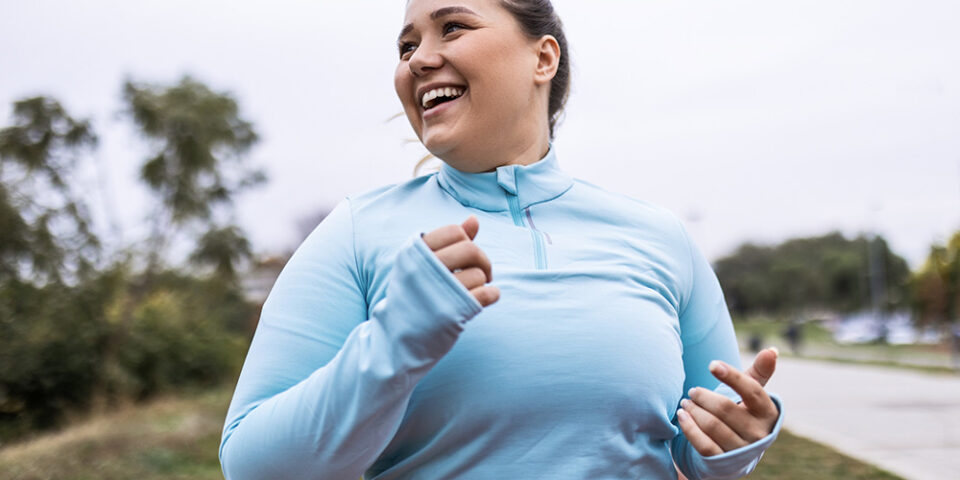Tips for running your first 5K or half marathon
Whether you’re racing to support a cause or you want to set a new fitness goal, knowing how to prepare for a running event is important. Osteopathic primary care sports medicine physician, Jeffrey Wisinski, DO, offered some pointers to get you on the right track for your first 5K or half marathon.
“If this your first time taking part in such an event, it’s important to prepare in advance so that you can safely perform and enjoy your experience,” Dr. Wisinski said.
Talking with your doctor is always a good first step before you start any strenuous activity, especially if you suffer from any chronic health conditions or if it’s been a while since your last doctor’s visit. Your doctor can check for any underlying health issues and prevent problems before they arise.
In addition to following these tips for starting a new exercise routine, here is some advice from Dr. Wisinski on how to prepare just before your race.
Training
A 5K is a 3.1-mile race that’s good for beginners, but don’t assume you can just run a 5K without any training, especially if you aren’t very active normally. It’s better to build up over a couple of months.
“If you have been training for it, the week leading up to the race should be more of a peak week,” Dr. Wisinski said. “What I mean by that is you’re doing low mileage to keep your muscles moving, agile and strong, but at the same time not inducing stress or any breakdown that could cause some soreness throughout the week. You want to make sure you’re in peak shape for race day.”
Diet
Eat a healthy and well-balanced diet and slightly increase your carbohydrates the week before your race so your body has sufficient energy stores. For example, if you typically eat one slice of toast for breakfast, consider increasing to two slices of toast.
“By gently increasing your carbohydrate intake a week leading up to the event, your gastrointestinal tract will be familiar with a higher proportion of carbohydrates,” Dr. Wisinski explained. “If you increase your carbohydrate load the night before, you run the risk of gastrointestinal upset, bloating and diarrhea – things that are not pleasant before you want to go out and run.”
He also suggested avoiding alcohol and high caffeine energy drinks in the two days before the race to prevent dehydration. And on the morning of the race, consider a smaller carbohydrate snack such as a banana, apple or nutrition bar an hour before the start time.
Sleep
Sleep is very important for the week leading up to the race, so strive to get several good nights of sleep. On the day before the race, avoid alcohol and spicy sleep-disturbing foods as well as caffeine after noon. It’s common for participants to toss and turn the night before a race given the excitement and preparation for a race, especially if you’re traveling and sleeping in an unfamiliar bed.
“If you increase your sleep or get good high-quality sleep throughout the week, that should leave you with plenty of rest and plenty of fueling for race day,” Dr. Wisinski said.
Dress for the weather
Weather can be tricky, so be sure to check the forecast. Plan for it to be cooler in the morning and then warmer as the day goes on. You can still overheat, even on a cool day, and you don’t want to carry layers with you, so plan accordingly.
“My rule of thumb is to always prepare for the weather to be warmer than predicted, so wear light colored clothing, Dr. Wisinski said. “If you’re worried about being cold during warm-ups, you can bring an extra layer of clothing and then give it to a family member or friend before the race starts. If you don’t have that luxury, you could wear a long-sleeved shirt that’s very thin and doesn’t keep in heat, but it prevents wind from striking your skin and making you cooler.”
Shorts are better than pants, even in rainy or cooler weather, as wet legs are better than wet pants and your legs will warm up with activity.
Don’t forget sunscreen and maybe a hat for protection from the sun. If the weather is warm, you can take advantage of water stations set up throughout the course by dowsing your head and hat with cooler water.
If rain is possible, be prepared with a rain poncho or other lightweight rain gear.
Gear
Do your best not to wear anything new on race day. Everything you put on your body should have been tested during training. Even the shirt you get for the race should at least be laundered prior to wearing it for the first time. Make sure your race clothing is set out on the evening prior to the race.
Shoes
Avoid wearing a new pair of shoes for the race. Most running shoes have a 300 to 600 mile running lifespan.
“If you’re going to try a new pair of shoes for a race, start using them at least two weeks before the race,” said Dr. Wisinski. “You want to feel comfortable and to have already been training in those shoes before coming out on race day.”
Skin protection
Blisters and skin chafing can be worse on warmer days due to increased sweating. To prevent this from happening, try applying baby powder on blister and skin chafing areas prior to the race. If you develop skin chafing or blisters during the race, apply Vaseline that’s offered at each of the water stations. Also, make sure to avoid socks with holes in them.
Find the care you need, close to home
Our primary care physicians provide well visits and everyday care when you need it with compassion and expertise.
Find Primary Care Near You

